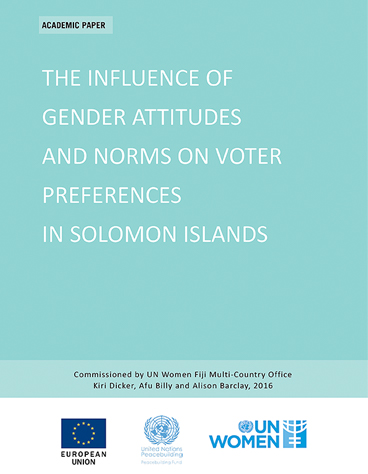
The influence of gender attitudes and norms on voter preferences in solomon islands

There is now a large body of sociological evidence that demonstrates that knowledge and attitudes are not necessarily the best predictor of human behaviour. In other words, just because someone believes that women should be in parliament, does not mean that they will vote for a female candidate on election day. This is supported by research in Solomon Islands, which clearly shows that high levels of notional support for women’s political participation do not translate into votes for female candidates. For example, in 2009 the RAMSI People’s Survey found that despite the fact that 81 per cent of men and 86 per cent of women said they would vote for a ‘good’ woman candidate, not a single woman came close be being elected in the 2010 National General Election the following year. Furthermore, the 2014 Voter Behaviour Study found that despite nearly unanimous notional support for more women in parliament, only 38 per cent of women and 24 per cent of men intended to vote for a female candidate and only 26 per cent of men and 27 per cent of women actually did. This further suggests that most voters make a conscious decision not to support a female candidate well in advance of election day.